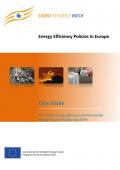
Slovak Energy Efficiency and Renewable Energy Finance Facility (SlovSEFF) intends to channel financing to sustainable energy projects reducing GHG emissions. This is done by providing: Loans (€20k – 2,500k); Grants (7.5% to 15% of loan); Incentive payments; Free technical assistance to borrowers (SlovSEFF 2015). SlovSEFF also aims at transferring and building expertise among banks and companies related to...
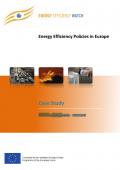
The overall target of the Danish government is to reduce total greenhouse gas emissions in Denmark by 40% by 2020 compared to 1990. Furthermore, Denmark aims to have an energy and transport system based on 100% renewable energy sources by 2050. Denmark has also introduced ambitious targets for new buildings. These...
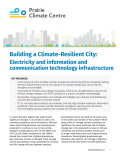
In recent decades, Alberta has experienced significant changes in its climate as well as its economy, population and environment. Alberta’s mean annual temperatures are increasing and projected to continue to rise in the coming decades—potentially by 2.0°C by the 2030s and 4.0°C by the 2060s (compared to the 1990s) —...
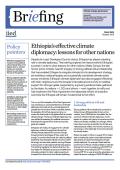
Despite its Least Developed Country status, Ethiopia has played a leading role in climate diplomacy. This briefing explores the factors behind Ethiopia’s success in order to draw lessons for other nations. Meles Zenawi, the late former prime minister, has left a legacy of strong political will and leadership that has...
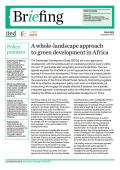
The Sustainable Development Goals (SDGs) set a new agenda for development, with the ambitious aim of eradicating extreme poverty within the next 15 years while also recognising environmental limits.
This new post-2015 agenda exposes the shortfalls of current approaches and demands a new approach to economic development. African countries are...
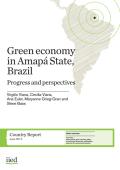
This report discusses the opportunities presented by the Amapá State government’s intention to make the transition to a green economy. It explores initial progress in green policy and activity, and associated dynamics in the political economy, and lays out a broad but feasible set of sectoral and cross-sectoral policy options...
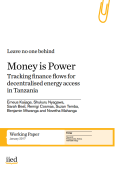
Investment in Tanzania’s energy sector is growing, but how much attention is being given to decentralised energy solutions for people who still lack energy for their basic needs: to light their homes and power their farms and businesses? This study maps the available data on finance for decentralised energy access...

Access to modern energy is vital for sustainable development. In rural areas, decentralized energy solutions may play a significant role in reducing poverty, supporting community institutions and facilitating the generation of basic services such as communication, water access, education and health services. However, the majority of dwellers in off-grid communities...
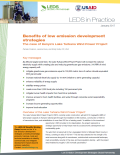
Countries pursuing low-emission development strategies (LEDS) aim to grow their economy while reducing greenhouse gas emissions, increasing resilience to climate change impacts, and achieving social development and environmental goals. Kenya has developed policies that align with these LEDS outcomes.
Kenya’s single largest private investment in history is the Lake Turkana...
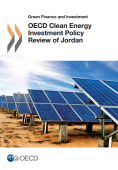
The Jordan Clean Energy Investment Policy Review is a country-specific application of the OECD Policy Guidance for Investment in Clean Energy Infrastructure. It aims to help Jordanian policy makers strengthen the enabling conditions for investment in renewable electricity generation in Jordan. The Policy Guidance is a non-prescriptive tool to help...
